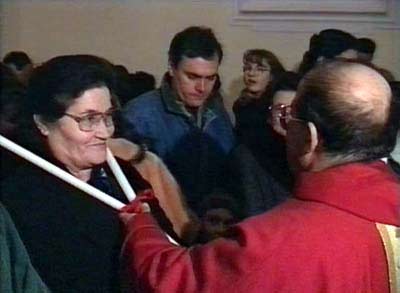Turnaround and rebuilding plan
Morality, justice, and personal generosity provide the way forward, as today’s first reading reminds us (Isaiah 58:9b-14):
If you remove from your midst
oppression,
false accusation
and malicious speech;
If you bestow your bread on the hungry
and satisfy the afflicted;
Then light shall rise for you in the darkness,
and the gloom shall become for you like midday;
Then the LORD will guide you always
and give you plenty even on the parched land.
He will renew your strength,
and you shall be like a watered garden,
like a spring whose water never fails.
The ancient ruins shall be rebuilt for your sake,
and the foundations from ages past you shall raise up;
"Repairer of the breach," they shall call you,
"Restorer of ruined homesteads."
 A Penitent Blogger
A Penitent Blogger













